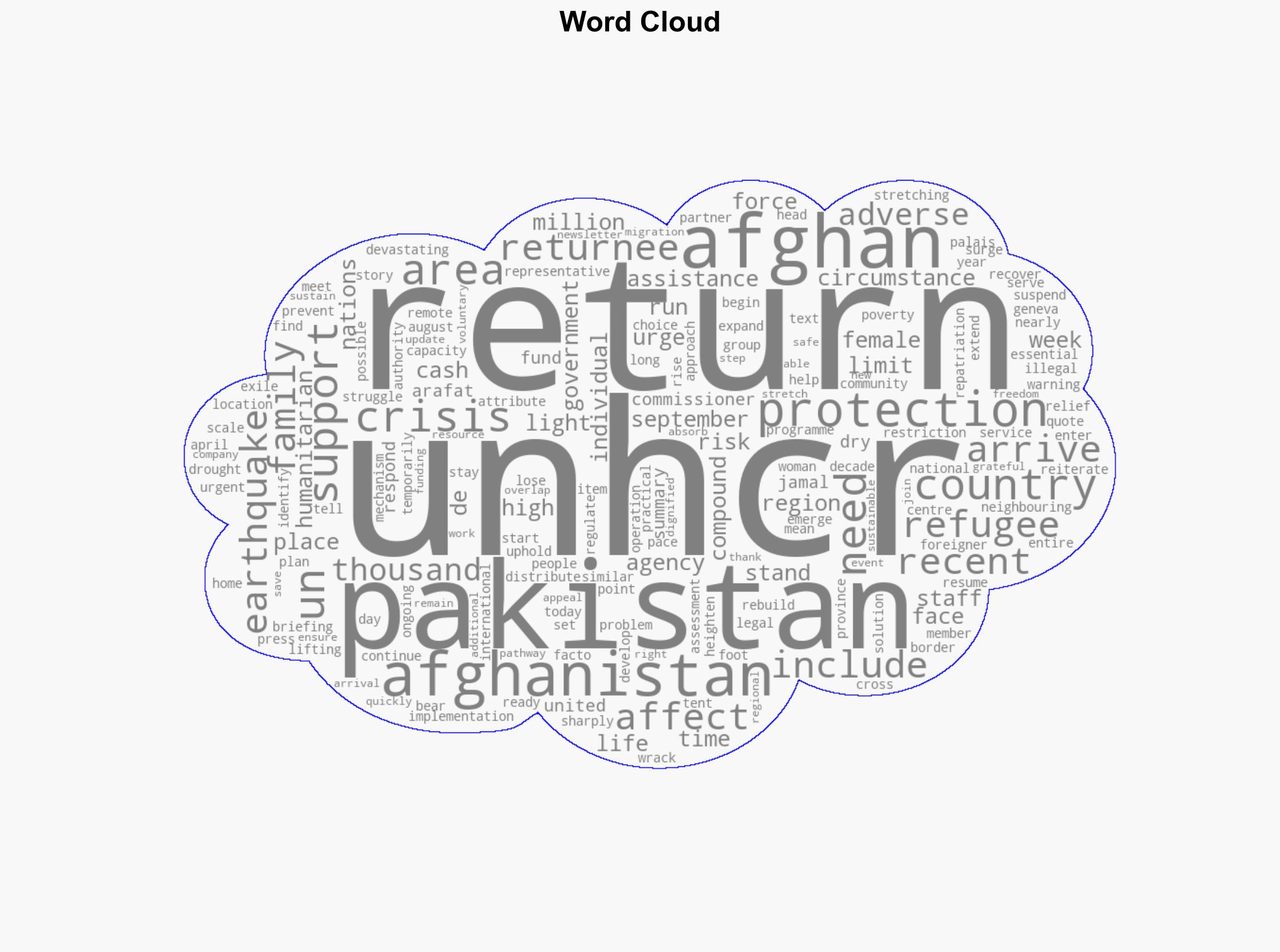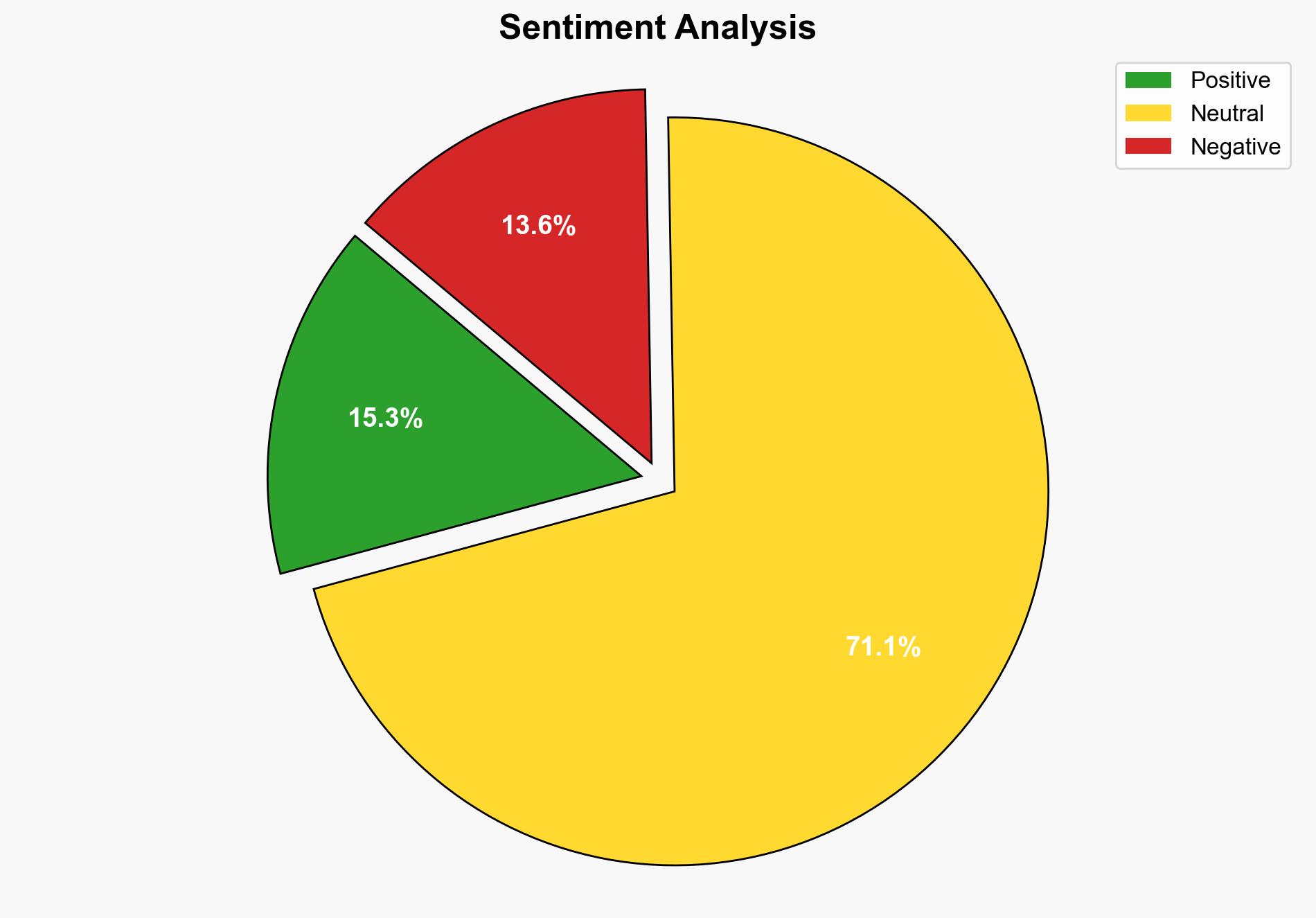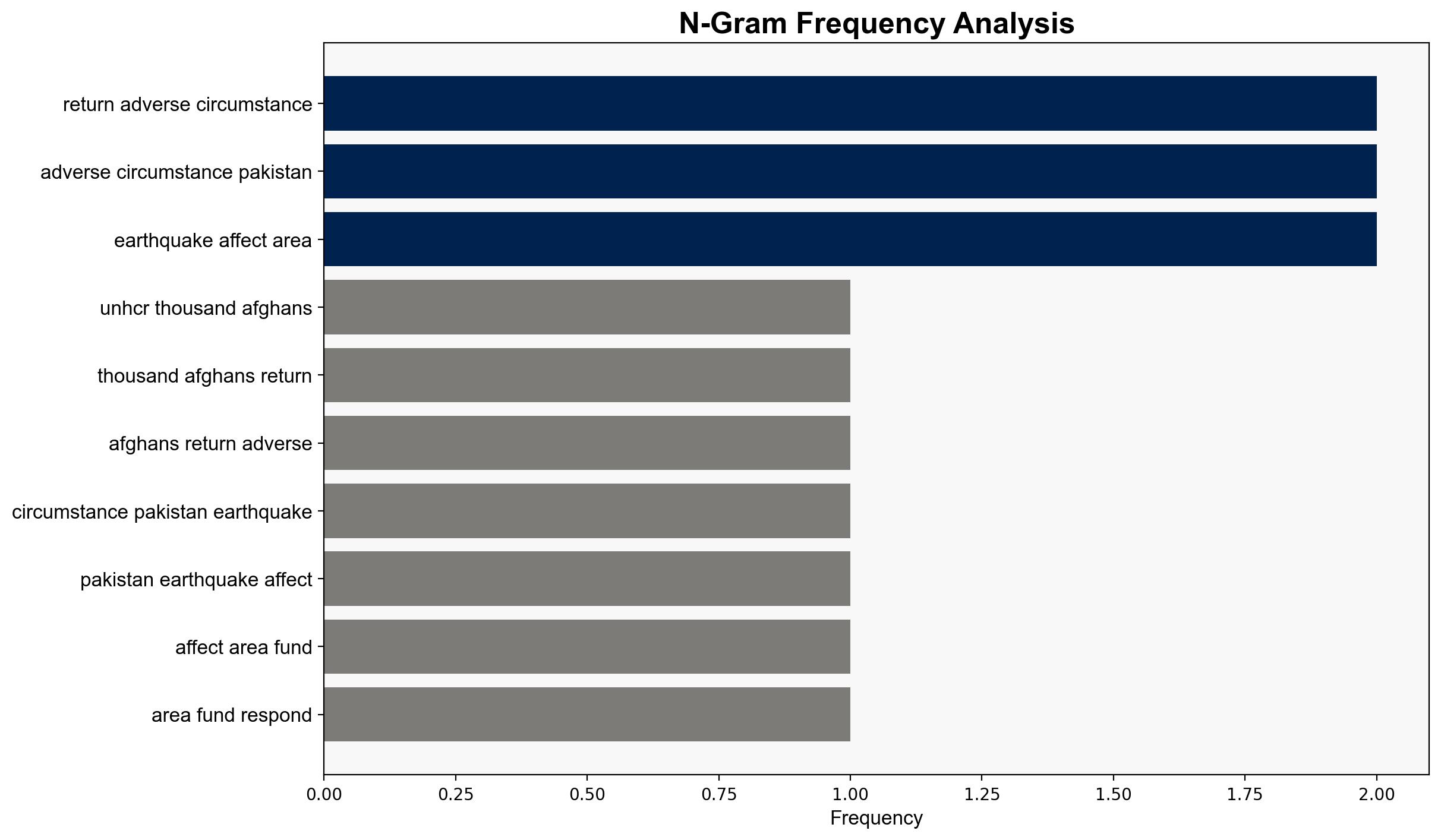UNHCR Thousands of Afghans return under adverse circumstances from Pakistan to earthquake-affected areas funds to respond running dry – Globalsecurity.org
Published on: 2025-09-13
Intelligence Report: UNHCR Thousands of Afghans return under adverse circumstances from Pakistan to earthquake-affected areas funds to respond running dry – Globalsecurity.org
1. BLUF (Bottom Line Up Front)
The most supported hypothesis is that the return of Afghan refugees from Pakistan is primarily driven by Pakistan’s enforcement of repatriation policies rather than voluntary return, exacerbated by inadequate international support and funding shortages. Confidence level: Moderate. Recommended action includes advocating for increased international funding and diplomatic engagement to ensure the protection and sustainable reintegration of returnees.
2. Competing Hypotheses
1. **Hypothesis A**: The surge in Afghan returnees is primarily due to Pakistan’s enforcement of repatriation policies, compounded by inadequate international support and funding shortages.
2. **Hypothesis B**: The return of Afghan refugees is largely voluntary, motivated by personal decisions to reunite with family or due to improved conditions in Afghanistan, despite the challenging circumstances.
Using ACH 2.0, Hypothesis A is better supported by the evidence of Pakistan’s implementation of repatriation plans and the UNHCR’s emphasis on the need for legal stay extensions and protection mechanisms. Hypothesis B lacks substantial support given the adverse conditions in Afghanistan and the reported lack of voluntary return incentives.
3. Key Assumptions and Red Flags
– **Assumptions**: Hypothesis A assumes that Pakistan’s policies are the primary driver of returns and that international funding is insufficient. Hypothesis B assumes that personal motivations outweigh external pressures.
– **Red Flags**: The lack of detailed data on the voluntary nature of returns and the absence of comprehensive assessments of conditions in Afghanistan pose significant blind spots.
– **Deception Indicators**: Potential underreporting of coercive tactics used in repatriation processes.
4. Implications and Strategic Risks
The forced return of refugees could destabilize already fragile regions in Afghanistan, leading to humanitarian crises and potential radicalization due to disenfranchisement. The lack of funding may exacerbate these issues, increasing regional instability and potentially affecting neighboring countries.
5. Recommendations and Outlook
- **Mitigation**: Advocate for increased international funding and support for UNHCR operations in Afghanistan to ensure adequate resources for returnees.
- **Diplomatic Engagement**: Encourage dialogue between Pakistan, Afghanistan, and international bodies to develop sustainable repatriation frameworks.
- **Scenario Projections**:
- **Best Case**: Increased funding and diplomatic efforts lead to improved conditions for returnees and stabilization in affected areas.
- **Worst Case**: Continued funding shortages and forced returns result in humanitarian crises and regional instability.
- **Most Likely**: Partial funding increases and diplomatic efforts lead to temporary relief but do not fully address the underlying issues.
6. Key Individuals and Entities
– Arafat Jamal (UNHCR Representative in Afghanistan)
7. Thematic Tags
national security threats, humanitarian crisis, regional stability, refugee repatriation




